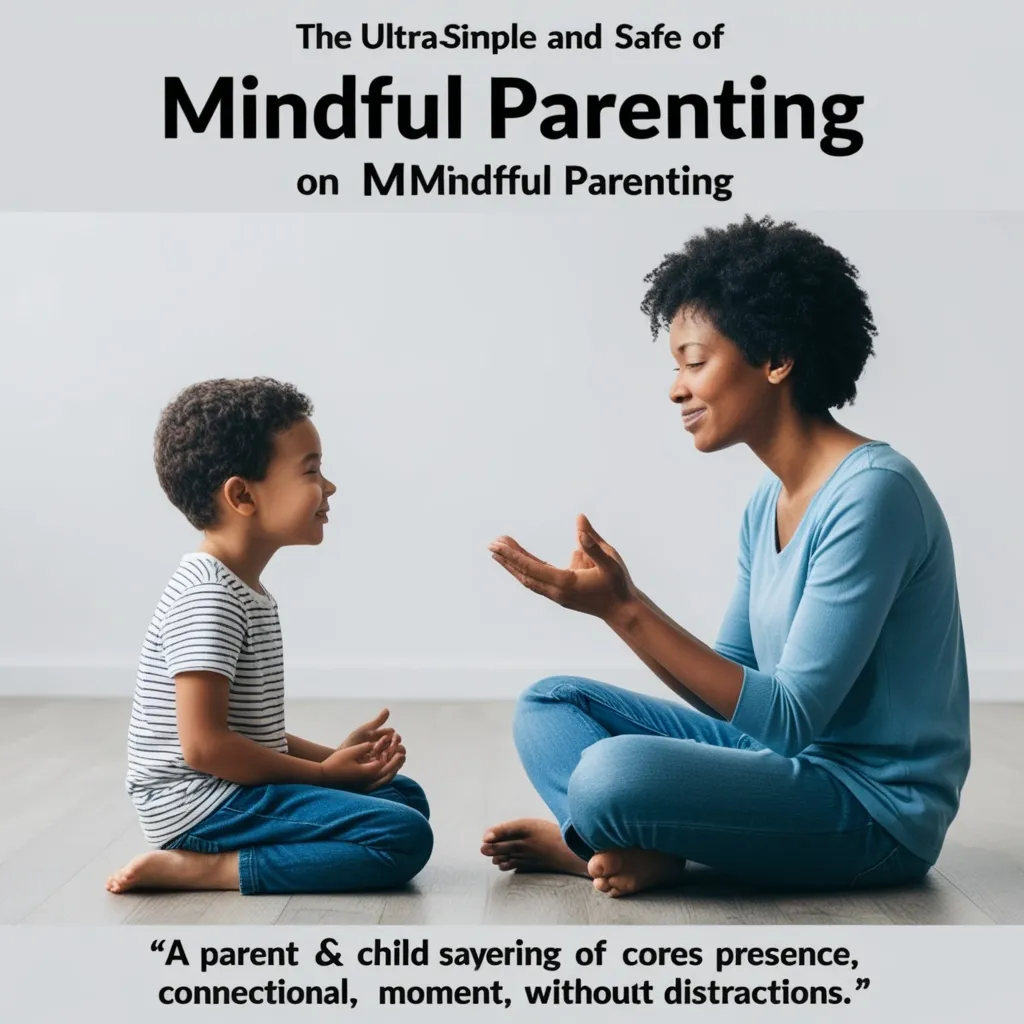Raising children is one of the most rewarding yet challenging tasks many of us will ever undertake. In today’s fast-paced world, it’s easy to get caught up in the hustle and bustle and forget to be fully present with our kids. However, adopting a mindful approach to parenting can make a significant difference in both our lives and the lives of our children.
Being present is fundamental when raising kids. There’s something magical about putting away distractions, like your phone, and really focusing on your child. Imagine playing a game or having a chat without the endless pings and vibrations of notifications. Those are golden moments that help create lasting memories and deepen your connection.
Kids have this incredible way of explaining their world, often through winding stories that might seem to go on forever. Instead of rushing them, see it as an opportunity to slow down and really appreciate the moment. Listen deeply when they talk. This not only gives you insight into their thoughts and feelings but also teaches them the value of being heard.
Children feel everything intensely. When they lose control, it can be frustrating. But if we take a step back and try to see things through their eyes, we can respond with empathy rather than frustration. This doesn’t just make our kids feel understood; it lowers the stress levels for both of us. It’s about recognizing that their emotions are just as valid as ours.
Another aspect of mindful parenting is managing our own emotions. A stressful situation requires a calm approach. Taking a deep breath before reacting can make all the difference. For example, if bedtime turns into a battle, taking a moment to collect your thoughts before responding can prevent the situation from escalating. This measured response can turn chaos into calm.
Acceptance is an integral part of mindful parenting. It means embracing your child as they are, strengths and weaknesses alike, and extending the same grace to yourself. We’re human, and mistakes are part of the journey. Embracing acceptance fosters a sense of security and stability, crucial ingredients for healthy development.
Setting clear boundaries is equally important. Structure and expectations provide security for children. This doesn’t mean harsh punishment but rather positive discipline. Instead of focusing on what shouldn’t be done, guide your child toward appropriate behaviors. For instance, calmly explaining why throwing toys isn’t acceptable and suggesting an alternative can go a long way.
Kids learn a lot by watching us. Demonstrating respect, kindness, and empathy in your daily interactions teaches them to replicate these behaviors. This includes how we treat them, our partners, and even strangers. By consistently showing respect and kindness, we’re imparting valuable life skills that will serve them well into adulthood.
Fostering independence is another key element. Allowing children to make choices and learn from their experiences helps build confidence and self-reliance. Simple decisions, like choosing their outfit or deciding on an activity, within reasonable limits, empower them. This nurtures their decision-making skills and sense of control.
In the heat of the moment, it’s easy to react impulsively. Mindful parenting encourages us to pause before responding. This brief pause can significantly alter how we deal with challenging situations. Taking a deep breath and stepping back for a moment allows for reflection and a more thoughtful response. It’s a small act with significant impact.
Awareness of emotions, both ours and our child’s, is essential. Recognizing what triggers our reactions and managing those triggers leads to more thoughtful responses and less escalation. If tiredness tends to induce frustration, ensuring adequate rest and breaks is essential for better interaction.
Self-regulation plays a crucial role. It involves being aware of our emotions and responding thoughtfully. It doesn’t mean suppressing feelings but acknowledging them and choosing a beneficial reaction for both parent and child. This practice creates a more stable and supportive environment for growth.
Mindful parenting isn’t about perfection; it’s about presence and compassion. Treat yourself kindly when mistakes happen and extend that same compassion to your child. Mistakes are part of the learning process and offer valuable growth opportunities. By showing compassion, we teach our children that it’s okay to err and learn from those errors.
Creating a mindful home environment where everyone feels valued and supported is fundamental. Engaging in family activities without screens or incorporating practices like meditation or deep breathing into your routine fosters this environment. These practices promote a more mindful and compassionate family culture.
Mindful parenting offers numerous benefits. It strengthens connections, makes parenting more fulfilling, and teaches essential life skills like empathy, self-regulation, and compassion. It also reduces stress and anxiety, contributing to a more peaceful home environment.
Starting small is key to incorporating mindful practices. It doesn’t have to be overwhelming. Begin by practicing mindful presence at specific times, like putting away your phone during family time or taking a deep breath before handling challenging situations. Gradually, you can expand these practices into other areas of parenting.
Mindful parenting is a journey, not a destination. It’s about continuous learning and growth for both parent and child. Mistakes are part of the process, and that’s okay. Consistency and patience are vital. The benefits will emerge over time, enhancing your relationship with your child and setting them up for emotional well-being and resilience.
Mindful parenting is about being intentional and present in interactions with your children. It’s about creating a supportive and compassionate environment where everyone feels valued and understood. Incorporating mindful practices into daily routines enhances parenting experiences and equips children with the tools they need to thrive in life. Remember, small, consistent efforts make the biggest difference in the long run.






